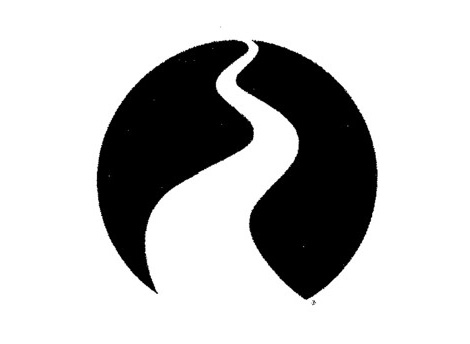An introduction by Yoginâm
When a way of life is presented, people quickly associate it with a religion or a sect. They are usually nor aware of the fact that the word ‘religion’ only makes sense in a Western context. In the past in the minds of most Western people, nobody mentioned religion, there was only a truth and the rest were heathen. Only when the culture expanded and other traditions were discovered, separating them into religions made sense. Still, the idea of truth was maintained and spread with colonialist fervour.
In this way various Indian spiritual traditions, some of which were violently opposing each other, were labelled as ‘Hinduism’ while the various ways in which the teachings of the Buddha found their expression in different cultures were labelled as ‘Buddhism’. This happened all over the world with regard to the ways people found meaning in their lives. Still today some wonder about how in some Asian countries people make a mix of various traditions.
This labelling had sometimes serious consequences, as people made the label into an identity. A very tangible consequence is the split of the Indian subcontinent into India and Pakistan. In the past there were many teachers who were neither ‘hindu’ nor ‘muslim’ or were both at the same time. When a label becomes an identity there is separation, misunderstanding and conflict.
Not so long ago the Dalai Lama said that in the present age of mind manipulation religions are dangerous. Such a remark could not have come from the pope, for the simple reason that the pope represents a religion in the full Western sense and the Dalai Lama not. The Dalai Lama is representing a cultural tradition with a distinct way of living.
In the cancel culture of today I think it would not be a bad idea to cancel the word ‘religion’ altogether as being a remnant of a Western colonial viewpoint, that is outdated. Its use leads to misunderstanding; culturally, academically and socially.
Because religion, with its association with a church religion, with political power and membership obligations, was gradually socially marginalised, ‘spirituality’ was seen as a kind of freedom religion. Throughout the years the word ‘spirituality’ lost its meaning because it is being used to describe almost anything.
In the meantime humanity is gradually losing its ‘humanity’, through an oligarchic drive in which the majority of people are gradually being reduced to the status of an irrelevant herd. In any living organism such a tendency would announce its demise. Therefore the anticipated great changes for a new future of humanity may very well appear to be an abyss. André Malraux said that the 21st century will be a ‘spiritual’ century or no century at all.
We are collectively responsible for human living. When things go wrong we have nobody else to blame but ourselves. I was in Paris in 1968, I was a student and we were driven by a freedom. It was a vain dream, totally unfounded, but we were free and tasted an increasing freedom in the subsequent years, freedom of expression, freedom of searching autonomous ways of living. This freedom has gone. We are no longer free citizens. We have given up our autonomy in exchange for empty promises.
I agree with André Malraux. We have extended our knowledge to the extend that we understand the very living that we are as bodies. We can manipulate our bodies for better and for worse. We do not however and can never understand why that what we understand is as we understand it. There is something of us that leads to the understanding. Something that is not understanding itself, and therefore cannot be understood, in the same way as an eye cannot look at itself.
I call it, by lack of a better word, our ‘transcendental’ nature. Of course, nothing is transcending in any phenomenal sense. Indeed, the parameters of human understanding do not apply to this transcendence. This is what Lao-Tse said when he expressed it as the Dao that can be mentioned is not the Dao. Humanity has been aware of this transcendence since the beginning of its evolution. Ancient rock drawings, and elaborate theologies are both an expression of this same awareness.
Without using the ominous words: ‘religion’ and ‘spirituality’, I want to say that in the ‘transcendental’ aspirations, all human ways of living are equal. Some are more effective with regard to these aspirations and some are downright detrimental, but in nature they are equal. I see the 21st century as an age in which the transcendental nature of humanity will become its main identification. This willed to the recognition that we all share in the same ideal. In that expectation we educate the next generation, carrying it with an increasing awareness in this aspiration.
In my early teens I had an inspiration that guided the rest of my life and that culminated in the Way of Nâm. It struck me then, that one can only believe what one cannot deny. It meant for me that you cannot believe something that you could also rationally deny. This meant at that time that you cannot believe in gods whose defined reality can be denied. On the other hand, one cannot deny the light as it appears to us, whatever its nature; it appears as light.
It has been a lifelong search in which I intimately participated in other cultures and tasted other traditions than my own. Always from the perspective of the expectation to find in it, an undeniable essence. I found this essence in ongoing realisation. I found that it is not an ordinary knowing. It is not conscious but actually more real.
One could for instance claim that the Virgin Mother cannot be believed because such a virginity can easily be denied. However it is a mind image. This image wants to express something that has nothing to do with virgins and with mothers. Therein lies the transcendental nature. In all traditions, expressed in their own ways, I found this expressed.
Traditions are not all one, they do not all believe in the same god. They are human expressions of different human cultures. However, they all do express the same aspiration, but in that aspiration, they are no longer the tradition that they assume themselves to be. It is this universal sameness in transcendence that the Way of Nâm expresses.
The Way of Nâm takes the essential transcendental human nature as the fundamental identification of being human. With this new identification, as a starting point, we should build a new humanity, away from its crises. A new humanity that is prepared for the 21st century. A humanity that uses its acquired knowledge and ongoing exploration and discoveries for increased human Well-Being.
We are all the carriers of humanity. This is a responsibility. Nâm shares with all traditions the same aspiration of living optimally in the transcendent reality that we are. Because we cannot know rationally the nature of our being transcendental, we have to find roundabout ways. Of this endeavour are the traditions a consequence. They give shape to this inherent responsibility of living, in what we do it and how we do it in the most optimal way.
The roundabout way of Nâm is tailored to the universal present-day life. The same primordial wisdom of living is translated into a terminology that is meaningful to people of the present-day world. We have two natures, one that appears in the phenomenal of living and one that is as if in the background, always there, never conscious. There are ways in which we can draw both together.
I think it is the ultimate Task of Human Living to optimise this movement of translation as good as possible. Realising life in gradual transcendence generates a kind of unconditional Well-Being, as an individual and consequently also as expressed in society. It shifts the ideals to lesser exploitation and greater cooperation. In it environment is just as intimately close as one’s personal being.



